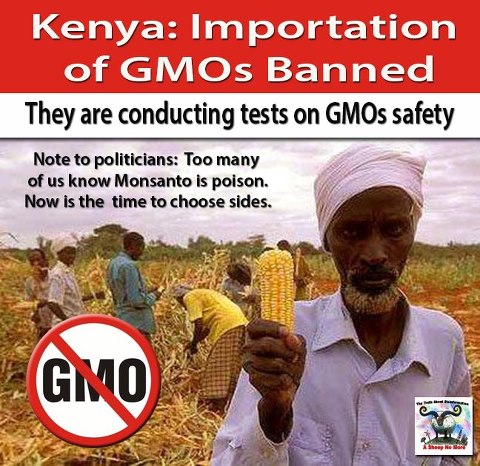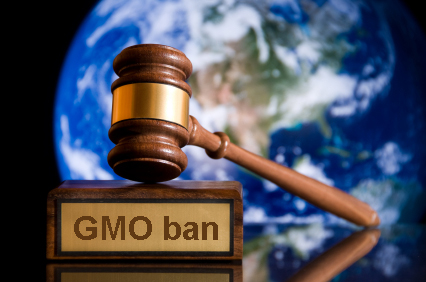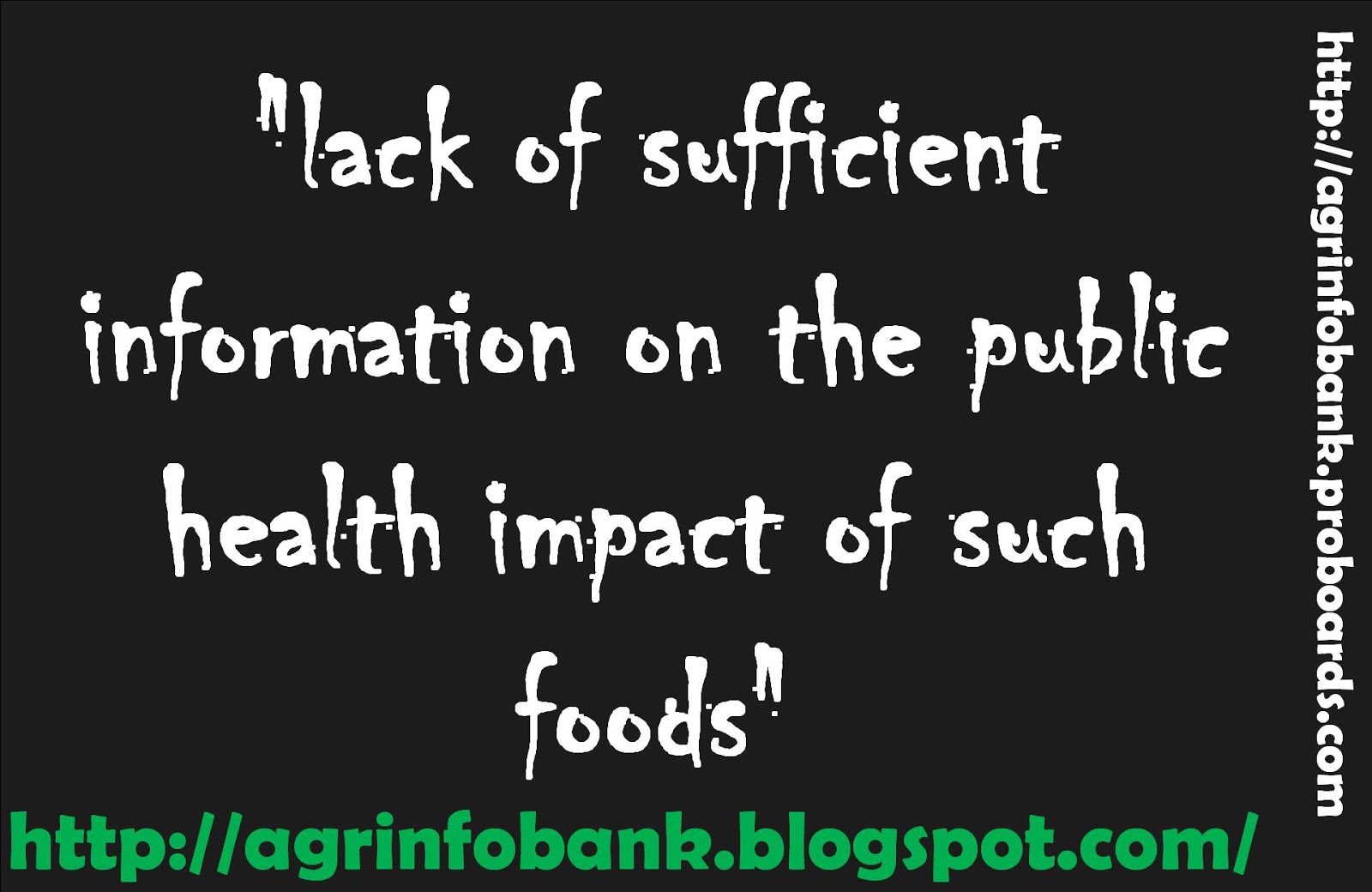Agriculture



The NBA board chair, Miriam Kinyua, tells SciDev.Net that for now, the government directive will stand. However, she added that researchers will continue to provide the government with information arising from research into GMO safety, so that a possible review of the directive can be undertaken.Kinyua says biotechnology research in Kenya will continue, as the ban does not infringe upon existing research and development activities. She also thinks the directive could help intensify research to provide sufficient data and knowledge on biotechnology. Richard Okoth, a biotechnology scientist at Kenyatta University, Nairobi, feels that the government's imposition of a ban while continuing to fund research on biotechnology through the National Council for Science and Technology is a contradictory position."The essence of GMO research is to provide a product that can complement efforts towards food security. This ban will discourage research, as the product for which the research is being conducted has been placed on import ban," Okoth said.
 Biotechnology research funding might be compromised, as international donors could be reluctant to provide funds following the ban, he adds.But the African Biodiversity Network (ABN), a regional research network based in Kenya, supports the step taken by the government and calls for the ban's strict implementation.Kenya only has three biosafety officers, and poor infrastructure and human capacity may make implementing the ban very challenging.
Biotechnology research funding might be compromised, as international donors could be reluctant to provide funds following the ban, he adds.But the African Biodiversity Network (ABN), a regional research network based in Kenya, supports the step taken by the government and calls for the ban's strict implementation.Kenya only has three biosafety officers, and poor infrastructure and human capacity may make implementing the ban very challenging.
- Parc Scientists Role For Agri Development Lauded
Saturday, July-13-2013 Federal Minister for National Food Security and Research (MNFSR) Sikandar Hayat Bosan said Friday that scientists of Pakistan Agriculture Research Council (PARC) were playing a pivotal role for the promotion and development of agriculture...
- Agricultural Sector Promotes Biotechnology
Wednesday, July-10-2013 National Food Security and Research Federal Minister Sikandar Hayat Khan Bosan, discussed the need to promote biotechnology at the launch ceremony of the International Service for the Acquisition of Agri-biotech Applications (ISAAA)...
- Genomics To Improve Farming
By Ijaz Ahmad RaoBiotechnology is having an increasingly important impact on various sectors and disciplines. Combined with genomics, proteomics and metabolomics, biotechnology can greatly aid our ability to confront the challenges of production, management,...
- Russia Completely Suspends Use Of Monsanto's Gm Corn
What does Russia know about genetically modified corn that we don't? Well, maybe not much, but the difference is Moscow is at least prepared to act on the information it has. According to recent reports, the Russian consumer-rights watchdog...
- Giant Baigan Ka Bharta Makes For A Delicious Record
It was a grand lunch fit to feed an army. Chefs from Le Meridian, Indian Institute of Hotel Management and Indian Culinary Forum prepared two mammoth containers of mouth-watering, traditional Punjabi style 'Baigan ka Bharta.' What made this simple...
Agriculture
Scientists torn over Kenya's recent GM food ban


Scientists torn over Kenya's recent GM food ban
Scientists fear that Kenya's recent banning of the import of genetically modified organisms (GMOs) may be a significant blow to progress on biotechnology research and development in the country.A cabinet meeting chaired by Kenya's president, Mwai Kibaki, this month (8 November), directed the public health minister to ban GMO imports until the country is able to certify that they have no negative impact on people's health. In a statement to the press, the cabinet said there was a "lack of sufficient information on the public health impact of such foods"."The ban will remain in effect until there is sufficient information, data and knowledge demonstrating that GMO foods are not a danger to public health," it added.
The directive comes three years after the government's establishment of the National Biosafety Authority (NBA), tasked with exercising general supervision and control of the transfer, handling and use of GMOs.

 Biotechnology research funding might be compromised, as international donors could be reluctant to provide funds following the ban, he adds.But the African Biodiversity Network (ABN), a regional research network based in Kenya, supports the step taken by the government and calls for the ban's strict implementation.Kenya only has three biosafety officers, and poor infrastructure and human capacity may make implementing the ban very challenging.
Biotechnology research funding might be compromised, as international donors could be reluctant to provide funds following the ban, he adds.But the African Biodiversity Network (ABN), a regional research network based in Kenya, supports the step taken by the government and calls for the ban's strict implementation.Kenya only has three biosafety officers, and poor infrastructure and human capacity may make implementing the ban very challenging.- Parc Scientists Role For Agri Development Lauded
Saturday, July-13-2013 Federal Minister for National Food Security and Research (MNFSR) Sikandar Hayat Bosan said Friday that scientists of Pakistan Agriculture Research Council (PARC) were playing a pivotal role for the promotion and development of agriculture...
- Agricultural Sector Promotes Biotechnology
Wednesday, July-10-2013 National Food Security and Research Federal Minister Sikandar Hayat Khan Bosan, discussed the need to promote biotechnology at the launch ceremony of the International Service for the Acquisition of Agri-biotech Applications (ISAAA)...
- Genomics To Improve Farming
By Ijaz Ahmad RaoBiotechnology is having an increasingly important impact on various sectors and disciplines. Combined with genomics, proteomics and metabolomics, biotechnology can greatly aid our ability to confront the challenges of production, management,...
- Russia Completely Suspends Use Of Monsanto's Gm Corn
What does Russia know about genetically modified corn that we don't? Well, maybe not much, but the difference is Moscow is at least prepared to act on the information it has. According to recent reports, the Russian consumer-rights watchdog...
- Giant Baigan Ka Bharta Makes For A Delicious Record
It was a grand lunch fit to feed an army. Chefs from Le Meridian, Indian Institute of Hotel Management and Indian Culinary Forum prepared two mammoth containers of mouth-watering, traditional Punjabi style 'Baigan ka Bharta.' What made this simple...
